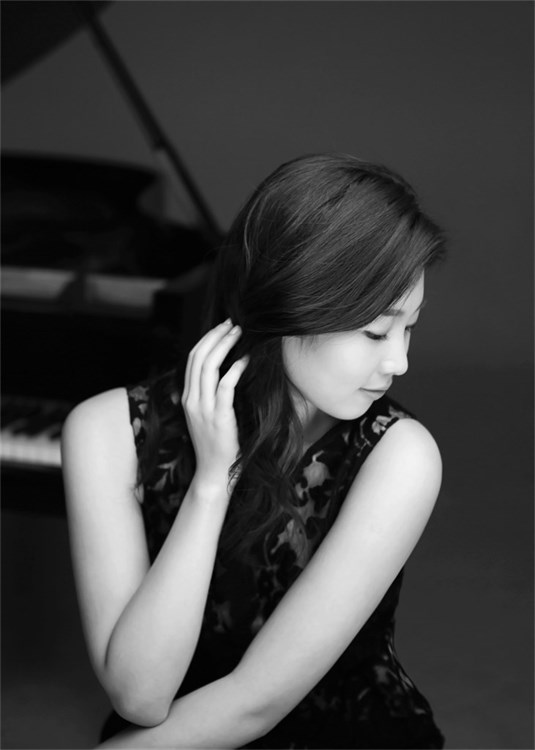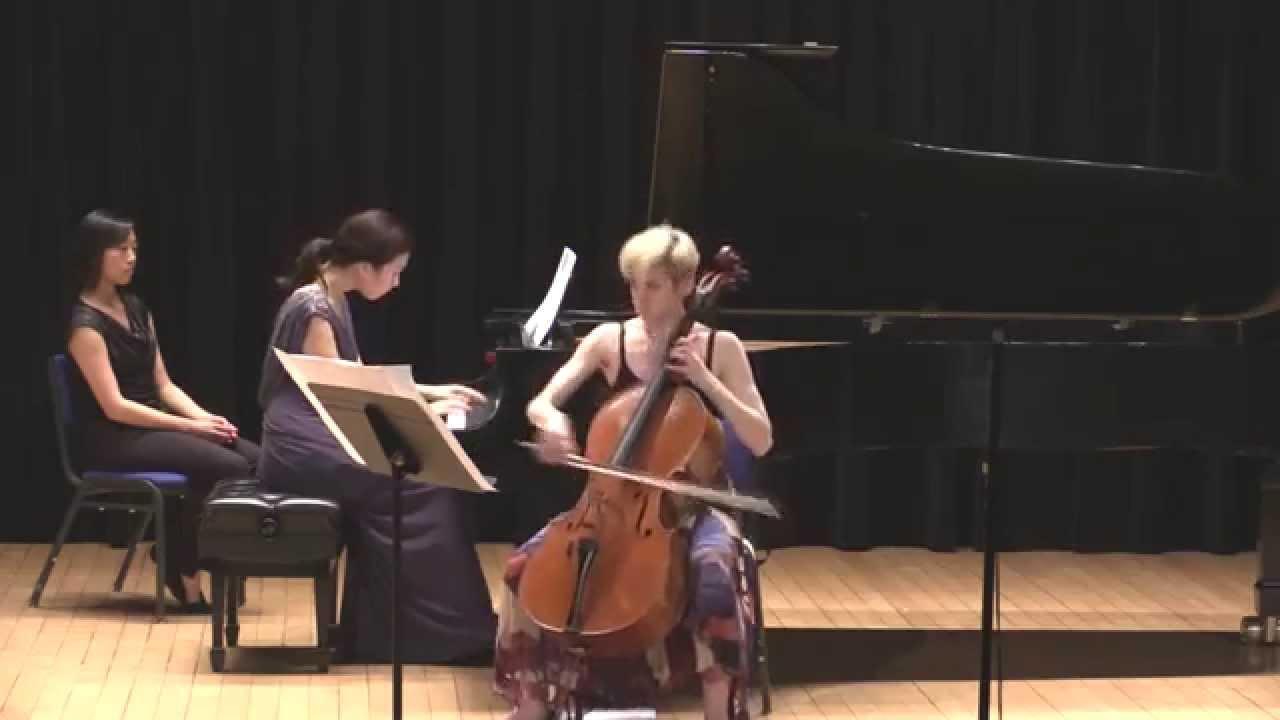
What has changed during your time at NEC?
I came to NEC 5 years ago. The only difference physically is the new building that’s being built—so I’m really excited about that!
"We will always be this family-like community."
NEC doesn’t change that much—we will always be this family-like community. But I’ve grown as a student.
The number one thing that changed with my playing is the way I listen. I listen to myself as I play music, but I also listen very carefully to my partner so that we can make the best collaboration possible. The ear is the most important part of our body as a musician, and the development of the ear is definitely something I gained through the program.
"The number one thing that changed with my playing is the way I listen."
I can’t compare my abilities as a musician before I came to NEC and myself now—it’s just there’s a tremendous difference that I feel, all thanks to the great faculty here.
Tell us a little more about your musical backstory.
I started off as a solo piano performance major for my undergrad, as did as my other friends in the program. It was getting a little boring and sometimes lonely, since we spend a lot of time in the practice room by ourselves; we perform by ourselves.
Then I participated one summer in a chamber music workshop, and it was really fun, being able to talk with others in rehearsal to figure out what makes most sense. It just really clicked with me, playing music with others, and I just wanted to do that for the rest of my life, instead of slaving away by myself on the keys.
Can you tell us more about the Collaborative Piano program at NEC?
When I came to NEC, I came knowing one song—I had one art song and two instrumental sonatas on my repertoire list. Within a year, that song had grown to a list about 200 songs, and instrumental sonatas as well. I had plenty at my disposal.
Basically, we’re learning the art of collaboration. It’s a very fun and friendly atmosphere that we work in.
"I think NEC has the best Collaborative Piano program in the nation, one of the best for sure."
I think NEC has the best Collaborative Piano program in the nation, one of the best for sure. Our faculty is amazing. Another thing is the diversity of the courses offered, and the curriculum of the program that lets us study a lot of different areas of vocal and instrumental repertoire.
Who are your teachers at NEC? What has it been like to study with them?
The number one reason for coming to NEC is because of the faculty, for sure. I study with three teachers, actually: Vivian Weilerstein, Jonathan Feldman, and Cameron Stowe, who’s the head of our dept.
Vivian Weilerstein was my first studio teacher at NEC. She was the reason I came to NEC. She’s the most passionate person I know, and she has taught me so much that I wouldn’t have imagined being able to do before.
"The number one reason for coming to NEC is because of the faculty, for sure...[my studio teacher] is the most passionate person I know."
How is a conservatory different from a university?
I did my undergrad at a university in Montreal...students were still interested in doing academics on the side, and I came to NEC and everyone was so serious about doing this music thing! [laughs] It’s really inspiring to be around people that love music as much as you do.
"It’s really inspiring to be around people that love music as much as you do."
What advice would you give to incoming students?
I will be honest: it will be very difficult and challenging when you first start as a collaborative pianist. Many sleepless nights, a lot of hours working in the practice room, because we don’t have this repertoire of collaborative music. But after a couple of years, once you have built all the necessary skills and your repertoire list, it will be very worthwhile. It is a very rewarding experience; all of it, however challenging it is.
Any favorite gigs you’ve done while at NEC?
My first year at NEC, a lot of students from our department participated in a gig at the Institute of Contemporary Art (ICA) in Boston. We were part of the opening for an exhibition of the artist Ragnar Kjartansson—he’s an Icelandic artist. There were five or six singer-pianist duos in one room, and we played Schubert’s “An die Musik.” You could play it anytime you wanted to. It was just this sort of cacaphony of sound, but it was also beautiful somehow.
You’re a doctoral student here at NEC. What’s that like?
The Doctor of Musical Arts program is a very small program within the NEC community. We’re small, but mighty! In my class, we have eight students.
We have a student in the CI (Contemporary Improvisation) department, a jazz composer, and some performance majors as well, so we’re a very diverse group in my class of DMA students. We’re challenged to think in ways that we haven’t done before, especially in the field of Musicology and Music Theory. It’s transforming us into being budding scholars.
What is the culture like among your fellow students?
We definitely have that strong bond as a school between students, but also faculty. It’s friendly competition, I’d say—we do have competition, but we encourage each other, and we’re happy for one another when another student wins a competition or a position in an orchestra. It’s definitely a family-like environment, and I’ve been thankful for that.
We do have competition, but we encourage each other, and we’re happy for one another when another student wins a competition or a position in an orchestra.
Got any funny NEC moments to share?
Well, there used to be a guy named Musical Elvis—he lived in the building right next to Jordan Hall and he would always sing outside his window. We haven’t seen him recently, so I hope he’s doing okay. But he was another singer of the school that we enjoyed having.
What’s it like to be a student in Boston?
I love the city of Boston. I fell in love with it the first time I came here. It’s a very multicultural, diverse city, and also student-friendly. There are so many things to do—amazing museums, like the Museum of Fine Arts right around our neighborhood near NEC, as well as the Isabella Stewart Gardner Museum, which I love.
I love the city of Boston. I fell in love with it the first time I came here...It's an amazing environment for students to study.
A lot of great food; there’s shopping if you like that. Boston, I feel, has everything to offer when you’re not in school if you want to go have some fun. And while being a city, it’s not as crowded or hectic as somewhere like New York. It’s an amazing environment for students to study.

